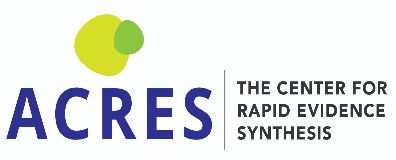
- June 29, 2024
- GIANT
- 0
The Heightening Institutional Capacity for Government Use of Health Research (HIGH-Res) was an interventional study whose aim was to increase institutional capacity for government use of evidence in decision making processes by implementing interventions that are complementary to the operations of the Ministry of Health.
The three -year (2019-2022) multi-site study was conducted in Kenya, Malawi and Uganda.
In Uganda, HIGH-Res targeted the Ministry of Health. It comprised of flexible, tailored and targeted interventions based on a theory of change aimed at institutionalisation of efforts for Evidence Informed Decision Making in Uganda.
Impacts of the HIGH-Res project
A. Systemic Changes in How Policy Decisions are Made
- Revised Ministry of Health (MoH) governance guidelines: ACRES supported the MoH in revising its governance structure to include requirements for Evidence-Informed Decision Making (EIDM). This ensures that all levels within the ministry use evidence-informed policy briefs for decision-making.
- Strengthening MoH departments: ACRES built capacity within the MoH’s policy analysis unit and health information division for EIDM. This includes agenda setting for priorities and generating evidence briefs.
- Technical support for MoH Scientific Advisory Committee: ACRES provided rapid evidence syntheses to support critical decisions like the rollout of COVID-19 vaccines for children.
B. Contributions to the Field of Evidence-Informed Policymaking
- Illustration briefs for community engagement: ACRES pioneered illustration briefs, translating complex evidence into pictures and messages for non-literate communities. This empowered them to participate in policy processes.
- Capacity building for EIDM users and researchers: ACRES trained over 100 researchers and decision-makers in EIDM in Africa, the Middle East, Latin America, Southeast Asia, Europe, and North America, especially the use of the Rapid Response Service.
- Developing a measurement tool for rapid knowledge translation: ACRES created a tool to evaluate the effectiveness of rapid knowledge translation models in policymaking.
Specific Examples
- Extending Breastfeeding Regulations: ACRES provided evidence on the needs of informal sector workers, leading the MoH to consider separate guidelines for breastfeeding support in this sector.
- Strengthening RIAs: ACRES joined the Office of the President’s Policy and Capacity Building department to strengthen the use of evidence in Regulatory Impact Assessments (RIAs) across various sectors.
- Reducing teenage pregnancies: ACRES helped contextualize evidence on involving males in teenage pregnancy prevention programs in a rural district.
- Supporting district responses to COVID-19: ACRES provided rapid response briefs on infection control and community outbreak management, enabling districts to respond effectively before official MoH support arrived.
